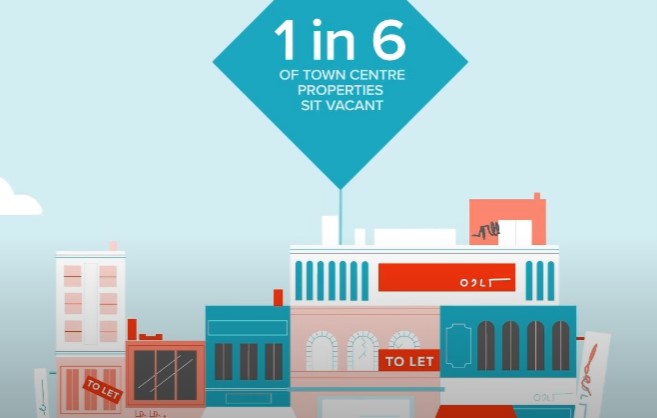The community charity Power to Change is calling for the setting up of a £350m High Street Buyout Fund to help communities take over empty shops in areas of disadvantage.
The move is the latest funding plan being mooted within the charity sector to help community groups and charities better support disadvantaged communities through the government’s levelling up agenda.
The move would help deprived areas “transition away from the failing retail dominated high street to new diversified high street that puts community in the driving seat”, says Power to Change.
If put in place the Fund would be used to swiftly buy empty properties to hold them until communities have the finance and structure to secure their long-term future.
This Fund should be backed by £100m of levelling up money from the government, says the charity.
“High streets were once the beating hearts of our local communities, but the growth of out-of-town retail; the rise of megastores; a seismic shift towards online shopping; and more recently a cost-of-living crisis has left them vulnerable,” said Power to Change policy manager Nick Plumb.
“This report makes clear what we know: that greater community ownership and involvement in the high street will push back against these worrying trends.
“A High Street Buyout Fund will help local people overcome the barriers they face, such as access to money at speed, in taking ownership of their high streets. We need this radical action now to ensure our much-loved community spaces survive and thrive.”
The call from Power to Change comes in a report Community businesses and high streets: taking back’ and leading forward, published by the charity along with the Centre for Regional Economic and Social Research at Sheffield Hallam University.
This estimates that community owned spaces contribute £220m to the UK economy, with 56p of every £1 they spend staying within the local community, compared to 40p for private firms.
Meanwhile, research by Power to Change and the Local Data Company has found that 16% of High Street shops are empty and one in 20 closed down stores have been vacant for more than three years.
Hybrid funding options
This is the latest funding initiative being called for to support communities amid the agenda.
Earlier this summer a report by New Philanthropy Capital urged the government to ensure funding for charities around levelling up is hybrid, offering a combination of loans and grants.
This week a survey by Ipsos found widespread public pessimism that the levelling up agenda will successfully tackle regional inequality.
Those living in Wales, Northern Ireland and the North of England feel particularly left behind, the survey found.
Latest News
-
Government ‘slow to tweak’ consumer law to protect charities, MP warns
-
2025: The long-reads
-
City of Culture charity to be supported for further two years
-
Friday funding roundup - 19 December
-
King visits charity founder days before she dies to invest her as a Dame
-
2025: Most-read opinion, diaries, Q&As and more
Charity Times video Q&A: In conversation with Hilda Hayo, CEO of Dementia UK
Charity Times editor, Lauren Weymouth, is joined by Dementia UK CEO, Hilda Hayo to discuss why the charity receives such high workplace satisfaction results, what a positive working culture looks like and the importance of lived experience among staff. The pair talk about challenges facing the charity, the impact felt by the pandemic and how it's striving to overcome obstacles and continue to be a highly impactful organisation for anybody affected by dementia.
Charity Times Awards 2023
Mitigating risk and reducing claims

The cost-of-living crisis is impacting charities in a number of ways, including the risks they take. Endsleigh Insurance’s* senior risk management consultant Scott Crichton joins Charity Times to discuss the ramifications of prioritising certain types of risk over others, the financial implications risk can have if not managed properly, and tips for charities to help manage those risks.
* Coming soon… Howden, the new name for Endsleigh.
* Coming soon… Howden, the new name for Endsleigh.
Better Society

© 2021 Perspective Publishing Privacy & Cookies











Recent Stories